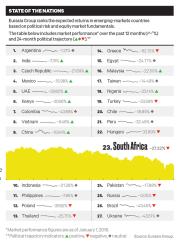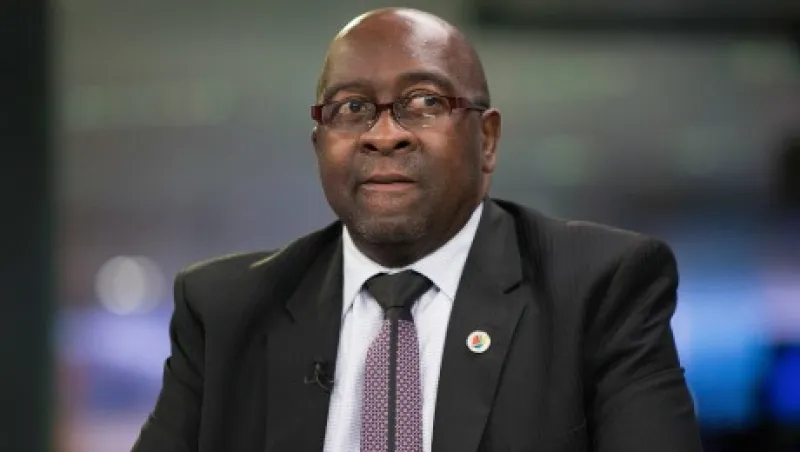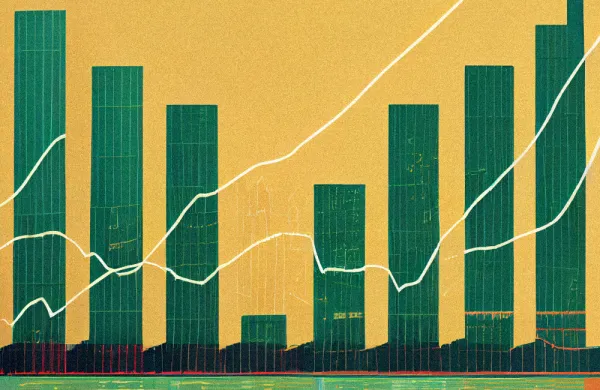President Jacob Zuma of South Africa surprised his constituents and global markets on December 9 when, without warning, he replaced his highly regarded Finance minister, Nhlanhla Nene, with a little-known politician lacking government experience, David van Rooyen. Given Zuma’s reputation for cronyism and graft — his 2014 home renovation set taxpayers back 246 million rand ($23.2 million) — critics feared the president had installed a yes-man to push his pet projects. Protesters took to the streets demanding his resignation.
International investors fearing Zuma had undermined the Treasury’s fiscal credibility expressed their disapproval via the capital markets. Bond yields hit a seven-year high, the rand sank to a record low of 14.61 to the U.S. dollar, and billions of dollars were erased from the country’s equity markets on the day of Nene’s dismissal.
Pressured from all directions, Zuma caved four days later by dismissing van Rooyen and replacing him with Nene’s predecessor, Pravin Gordhan. “The fact that we saw a quick change back to what was perceived by the market as a market-based Finance minister was a healthy sign,” says Rohit Chopra, New York–based portfolio manager for Lazard Asset Management’s emerging-markets value strategy.

Still, the damage had been done at a time when the country could least afford it. South Africa’s economy has been reeling from plunging commodities prices. Just days before the ministerial change, Fitch Ratings cut its rating of the republic’s debt to BBB– and Standard & Poor’s Corp. downgraded its outlook on the country to negative, putting South Africa at risk of joining Brazil in the BRICS junkyard.
The rand fell by a further 5.3 percent to hit 16.74 to the dollar on January 19 while the Johannesburg stock exchange’s FTSE/JSE All-Share Index dipped another 1 percent, leaving it nearly 13 percent below its early November peak. “The market is acting as if the political risk in South Africa is very high,” says Ricardo Adrogué, head of emerging-markets debt at Springfield, Massachusetts–based Babson Capital Management. Adrogué reads the events differently, though, saying the incident suggested that there are limits to Zuma’s power. He also points out that much of the country’s debt is denominated in rand, so the currency’s slide won’t have an immediate effect on the country’s solvency.
South Africa’s economy, the continent’s second-largest, is expected to expand by just 0.7 percent in 2016, lagging well behind the sub-Saharan average of 4.0 percent. Unemployment sits at about 25 percent, while a severe drought and rolling power outages threaten to sap productivity. Anticipating tightening by the U.S. Federal Reserve, the South African Reserve Bank raised interest rates twice in 2015, to 6.25 percent, and analysts expect further increases this year.
Notwithstanding the macroeconomic woes, Lazard’s Chopra finds investment opportunities, particularly in domestic-oriented businesses. Companies in sectors such as banking, food distribution and logistics have strong barriers to entry, solid economies of scale and best-in-class management teams focused on profitability, he says.
South Africans will be able to air their grievances in local elections this summer. The rival Democratic Alliance party hopes to sweep key municipalities, including commercial capital Johannesburg, though Ralph Mathekga, founder of Johannesburg-based consulting firm Clear Content, doubts major changes will occur. “South Africans are sometimes willing to forgive Zuma because he represents the 104-year-old ANC party, associated with the liberation and antiapartheid movements,” he explains. The ANC has been in power since the country ended apartheid and transitioned to majority rule in 1994.
But there’s a growing group of young educated voters in South Africa who are adding more checks and balances to the system, insists Chopra. “They didn’t grow up during apartheid, and as they become more influential and take on more skilled jobs, there’s an opportunity for them to play a greater role in how the ANC begins to reform,” he concludes.
Follow Georgie Hurst on Twitter at @Ghurst_iimag.






